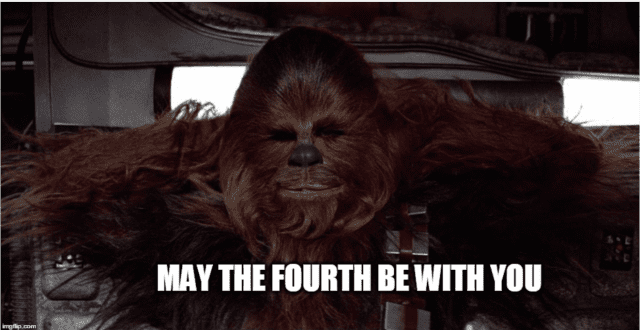
This week we will start looking at the Civil Rights Movement (CRM) for Chapter 21. This Chapter briefly discusses some of the larger events and key people of the CRM. There are millions of people who fought during the CRM for equality, equity, and minority rights. The fight still carries on today in many ways. Hopefully the articles below will give you a basis for the history of movement and a better appreciation for those who fought and continue to fight for civil rights in America.
We will have our weekly meetings on iLearn using the Big Blue Button again this week. Please come to our scheduled meeting time.
Directions to get on to iLearn for Big Blue Button.
Weekly Meeting Schedule:
Tuesdays: 1st hour 1pm – 1:40pm; 2nd hour 2pm – 2:40pm
Wednesdays: 3rd hour 1pm – 1:40pm; 4th hour 2pm – 2:40pm
Thursdays: 5th hour 1pm – 1:40pm; 6th hour 2pm – 2:40pm PREP
Announcement: If you are interested in being in the Link Crew next year, please fill out this survey form. Let me know if you need a recommendation letter for it and I will fill one out! https://forms.gle/aTC9Tw2aEks4SrgR7
Chapter 21: Civil Rights
Readings & Reflection Activity
Directions: Read each of the four articles below about topics from Chapter 20. Choose one article and answer the questions on the Weekly Reflection Activity template below. Please share your Google Doc with connore@dearbornschools.org by 11:59pm on Sunday, May 10th, 2020. You may share it earlier if you complete it sooner. We will discuss these articles during our online class meetings on Google Meet. Please try to read them before our meeting.
Weekly Reflection Activity Template (Save on your Google Drive!)
Before you read the four articles for this week, I would like you to get acquainted with the Civil Rights Movement Timeline of major events during the 1950s & 1960s.
Article 1: From Footnote to Fame in Civil Rights History by Brooks Barnes
https://www.nytimes.com/2009/11/26/books/26colvin.html?_r=0
Article 2: Why Eisenhower Sent the 101st Airborne to Little Rock After Brown v. Board
https://www.history.com/news/little-rock-nine-brown-v-board-eisenhower-101-airborne
Article 3: Bombing of the Sixteenth Street Baptist Church, 1963 from Gilder Lehrman
https://www.gilderlehrman.org/history-resources/spotlight-primary-source/bombing-sixteenth-street-baptist-church-1963
Be sure to look at the primary source from Rev. Oliver on the left and watch the short video at the bottom as well.
Article 4: 50 Years Ago, Students Fought For Black Rights During ‘Freedom Summer’ by Fresh Air on NPR
https://www.npr.org/2014/06/23/324879867/50-years-ago-students-fought-for-black-rights-during-freedom-summer Listen to the interview and/or read the article
The articles below may also be used if you would like to use them for your Reflection Activity. These are not required reading, but you might find them to be interesting and informational.
- KING Issue of The Atlantic with dozens of articles about Dr. Rev. Martin Luther King, Jr. & the Civil Rights Movement
- A Collection of Rare Color Photographs Depicts MLK Leading the Chicago Freedom Movement by Max Kutner, Smithsonian
- Montgomery Bus Boycott website
- The Freedom Riders, Then and Now
- The Voices of Struggle (Music)
- The Selma-to-Montgomery Marches
- Jimmie Lee Jackson: The Death That Gave Life to Voting Rights
Chapter 21 Civil Rights Vocabulary
- Black Panthers: a revolutionary black nationalist group who worked to fight poverty and police brutality in the ghettos
- Brown v. Board of Education: a landmark U.S. Supreme Court case in which the Court declared state laws establishing separate public schools for black and white students to be unconstitutional.
- Civil Rights Act of 1964: a landmark piece of civil rights legislation which outlawed discrimination based on race, color, religion, sex, or national origin and ended unequal voter registration requirements and racial segregation in schools and the workplace.
- Civil Rights Act of 1968: a landmark piece of legislation that provided for equal housing opportunities regardless of race, creed, or national origin and made it a federal crime to “by force or by threat of force, injure, intimidate, or interfere with anyone … based on their race, color, religion, or national origin.”
- de facto segregation: a form of segregation that exists due to historical practice or customs
- de jure segregation: a form of segregation that exists by law
- Freedom Riders: Civil rights activists who rode buses into the segregated southern United States in 1961 to challenge the non-enforcement of United States Supreme Court decisions which had ruled that segregated public buses were unconstitutional
- sit-ins: a form of non-violent protest in which African-Americans sate a segregated lunch counters and refused to leave until they were served
- Student Nonviolence Coordination Committee (SNCC): an important Civil Rights organization which formed during a student meeting at Shaw University in April 1960
- Voting Rights Act of 1965: a landmark piece of federal legislation in the United States that prohibits racial discrimination when voting by eliminating literacy tests and poll taxes
